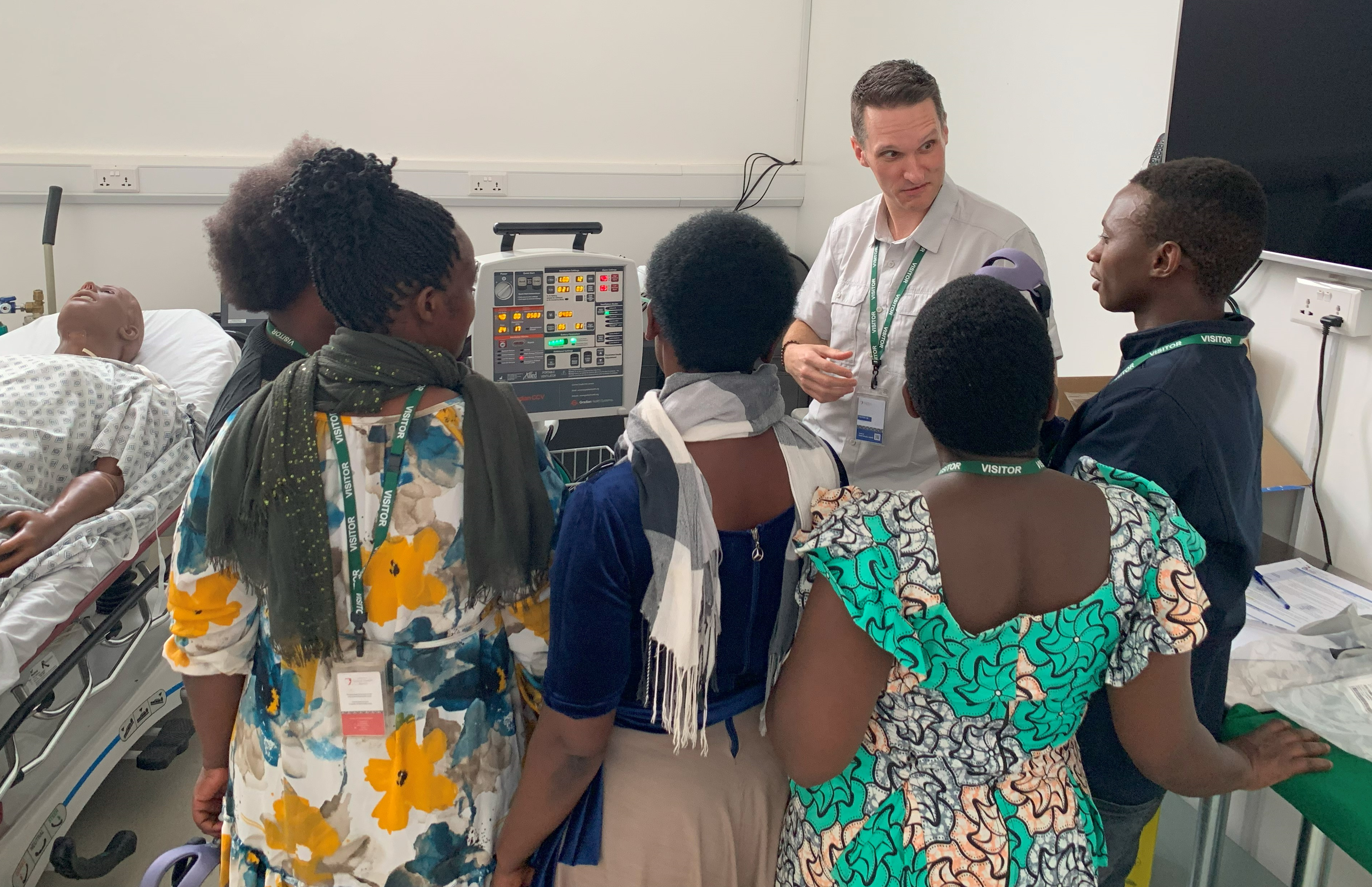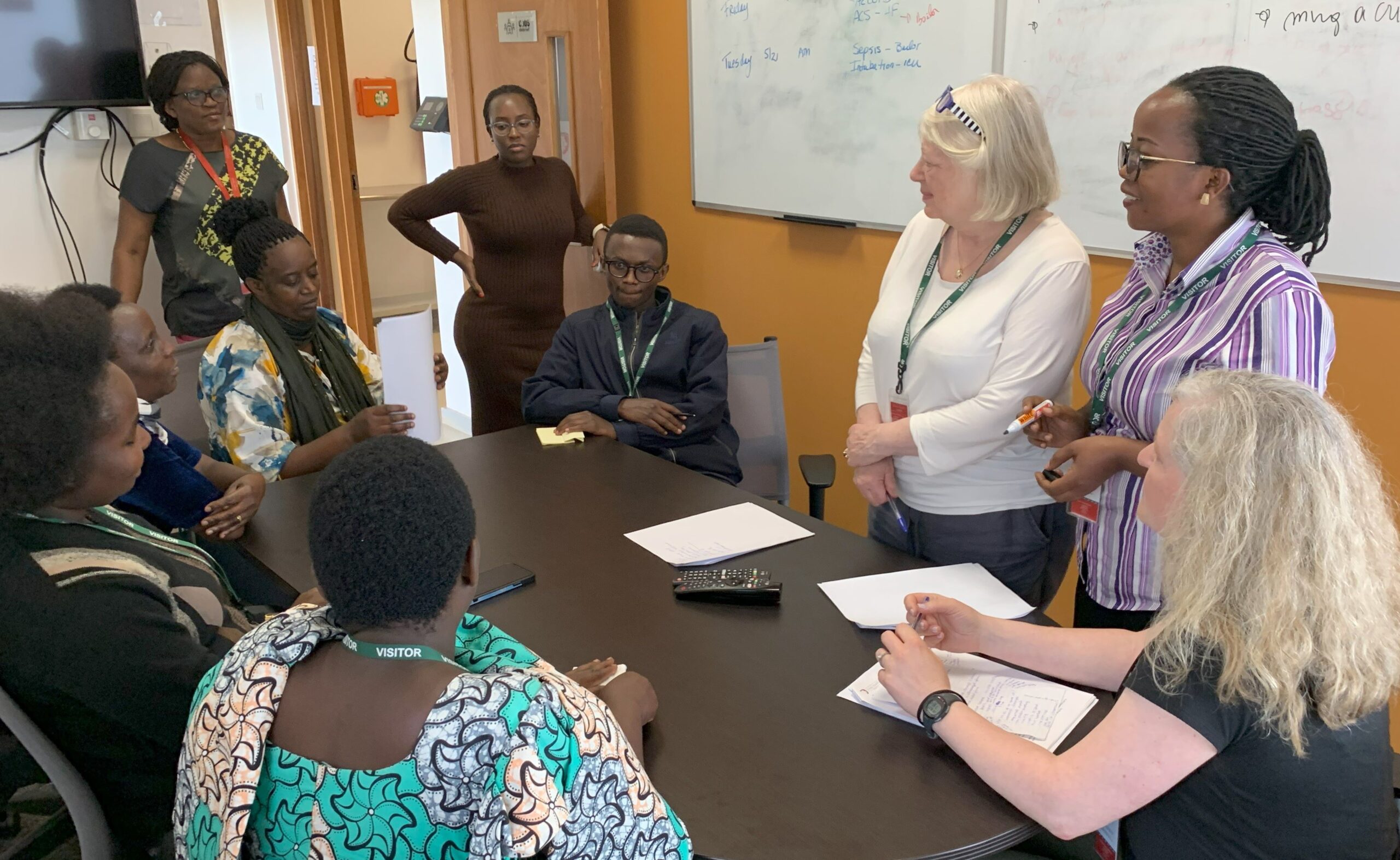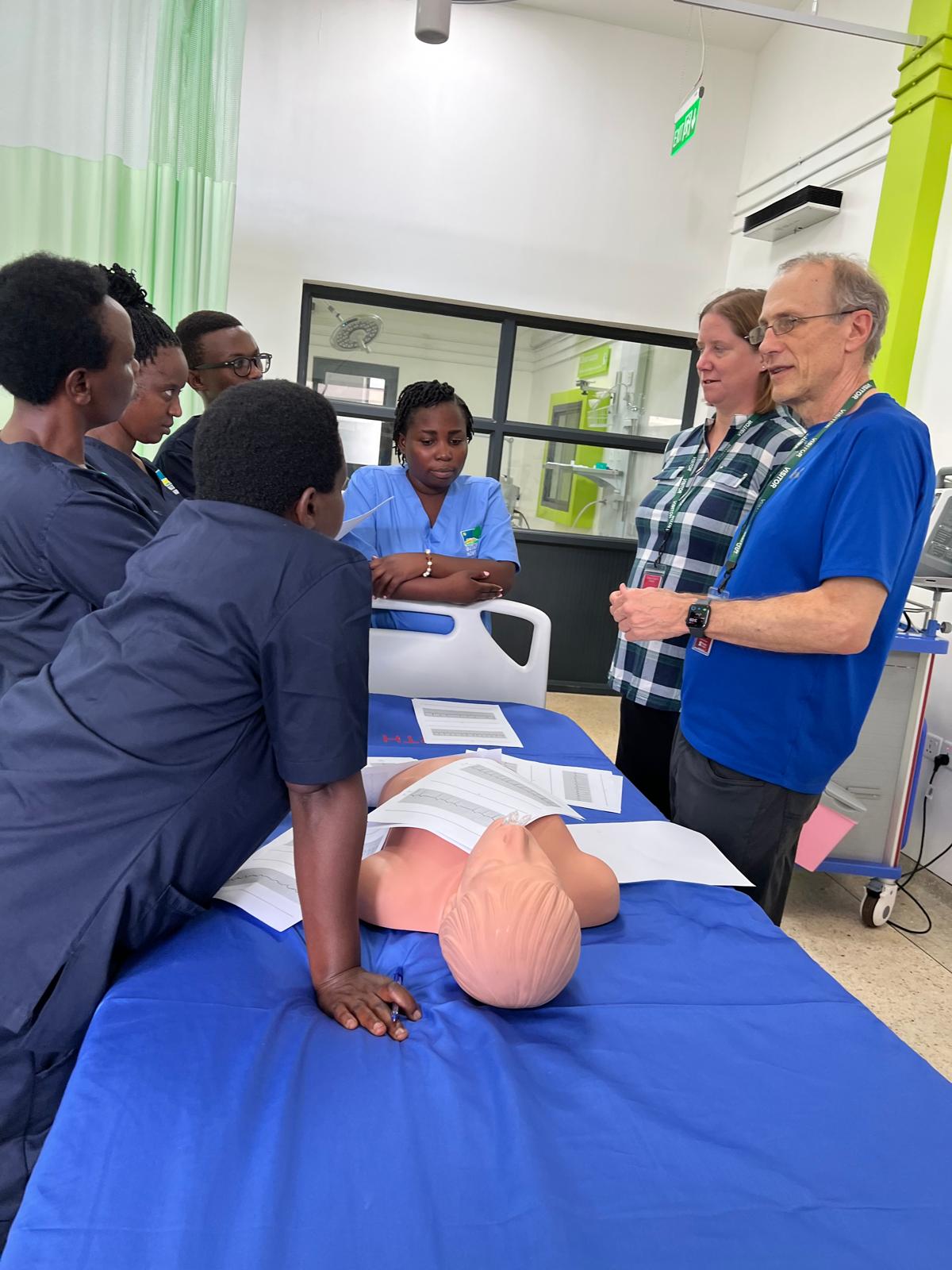Critical Care in Rwanda
Implementing critical care services at a hospital in Rwanda
The public hospital in Butaro, Rwanda is in one of the poorest districts of Rwanda. The hospital leadership and their partners at Partners in Health are determined to provide high-quality care to the people in this rural community.

David Crone, RT provides classroom instruction.
They intend to shatter the assumption that poor people in rural areas are somehow less deserving of healthcare services than people who live in areas of greater prosperity.
Global Perm NW was invited to assist in setting up critical care services at the hospital. This invitation was based on our previous experience in bolstering critical care in a hospital in Ethiopia. Our Global Perm NW team of physicians, nurses, and respiratory therapists has designed a concise but comprehensive training program for the Butaro nurses.
We needed to create a novel training program because we were unable to find any existing training curriculum targeted to the needs of this setting. The program includes assigned reading, classroom presentations, simulation-based learning at the University of Global Health Equity, and written job aids.

Learning about supporting patients who are very short of breath.
Nurses were also exposed to bedside care within an established critical care service at urban hospitals for 3-4 weeks. Training began in January 2024 with a group of 20 trainees and will continue for 18-24 months.

Debriefing after a simulation scenario is important to maximize learning.
In addition to training personnel, we are also helping to develop care protocols, clinical guidelines, policies, and other tools to support the implementation of high-quality care. We expect these tools will be helpful to many other hospitals in low-income countries. We intend to evaluate the effectiveness of our work and make the tools freely available to other institutions.
“There are many hospitals in sub-Saharan Africa that are eager to increase their ability to provide life-saving treatment to their sickest patients,” says David Schmidt, a critical care physician from Portland. “As a medical director of ICUs in the US, and I am excited to be able to use those skills to help build critical care capacity to help people in Africa.”
This project is an example of the power of partnerships. The leadership of the Butaro hospital, the Rwanda Ministry of Health, and Partners in Health are propelling the hospital forward, with Global Perm NW and the University of Global Health Equity assisting by bringing expertise in the areas of critical care and education. We have also recently been joined by a team from the University of Minnesota who will provide training in pediatric critical care.

Nurses learning to recognize and respond to abnormal heart rhythms.
“With rare exceptions, all of your most important achievements on this planet will come from working with others—or, in a word, partnership.”
—Dr. Paul Farmer
